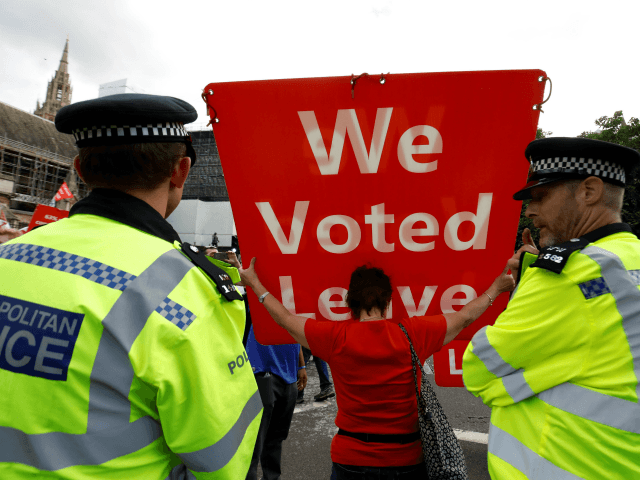The United Kingdom will still be subject to European Union laws for up to three years after Brexit day under Prime Minister Boris Johnson’s withdrawal agreement.
MPs in the House of Commons are voting on the 110-page European Union (Withdrawal Agreement) Bill (WAB) Tuesday afternoon. The prime minister is hoping the bill will be passed within three days to ensure the UK stays on schedule to leave the EU on October 31st.
However, even if MPs pass the bill and the UK leaves on time, the country will continue to be subject to decisions made by judges at the European Court of Justice (ECJ) until the end of the transition period, according to the document’s wording as analysed by The Telegraph.
The WAB replaces the European Communities Act 1972, which brought the UK into what came to be known as the EU, but states that the ECJ “continues to have effect in domestic law”.
Explanatory notes published with the bill explains that “it will be necessary to ensure that the EU Treaties and other EU law continues to apply in the UK during the implementation period”.
“…new pieces of directly applicable EU law that are introduced during the implementation period will continue to apply automatically within the UK”, it continues.
Veteran Brexiteer and Conservative MP Sir Bill Cash said this contradicts the EU (Withdrawal) Act 2018, which states: “The European Communities Act 1972 is repealed on exit day.”
The implementation period — or transition period — is the timeframe after the UK has, on paper, left the EU but during which arrangements between the UK and EU will continue. During the transition, negotiators on both sides of the English Channel will work on finalising a final relationship between the UK and EU. It is notionally expected to last until December 2020 but can go on for as far as December 2022 if both sides agree.
In that time, the UK is expected to abide by all EU regulations. While it can negotiate, sign, and ratify free trade agreements with third countries like the United States, they cannot come into force until after that period has ended. That means that up to six-and-a-half years after the Brexit vote — and more than three years after Brexit day — technically the UK still will not have left all Brussels institutions.
Eurosceptics have warned that there were several provisions unfavourable to the UK in Theresa May’s exit agreement that would still be present in Mr Johnson’s deal. Besides the continued supremacy of the European Court of Justice, there is opposition to the £39 billion divorce bill and continued free movement during the transition period.

COMMENTS
Please let us know if you're having issues with commenting.